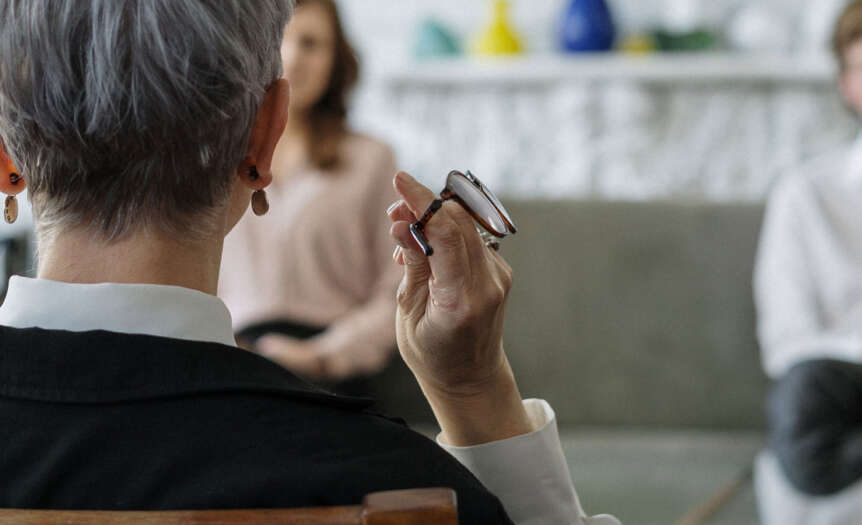Let’s be honest: Raising children can be a challenge for parents who live under the same roof, so imagine the challenges that arise when there are two homes, different parenting styles and lack of communication. Are you pulling your hair out yet? This is when a co-parenting coach becomes the MVP of your newly structured family. Co-parenting coaching is not about the divorce story but firmly seated in the best interests of the child. The coach’s goal is to work on communication styles between parents, educate, explore options and collaborate so your child does not suffer the fallout from the divorce. If you are parents of a special needs child, it is vital that you work with a co-parenting coach and one that has a background in special needs.
Every family’s needs are different — and your coach will tailor-make your game plan — but these are some of the areas you can expect to work on:
- Adjusting to different parenting styles
- Communication
- Helping your child transition from one to two homes
- Organization and scheduling
- Conflict management
- Identifying and prioritizing concerns
- Stress management
- Long-term solutions and not just putting out fires
- Managing emotions
- Ways to restructure the family
- Ongoing support (i.e., new partners, significant family events)
So, the question arises: What happens if one spouse is not interested in co-parenting? Unfortunately, that scenario happens quite a bit; but the co-parenting coach can still help the one parent with all the above, along with acceptance of the situation and strategies on how to now shift from co-parenting to parallel parenting. The key is to be proactive. Meet with a co-parenting coach at the start of your divorce to discuss any concerns you have. In other words, don’t wait until the horse is out of the barn to shut the door.
Here are some books that are worth the read:
- Making Divorce Easier on Your Child (Long and Forehand)
- Joint Custody with a Jerk (Ross and Corcoran)
- Putting Children First (Pedro-Carroll)
- Mom’s House, Dad’s House (Ricci)
- The Unexpected Legacy of Divorce (Wallerstein, Lewis and Blakeslee)
The emotional well-being of your children is the most important thing, and as difficult as it may be while you are trying to deal with your own grief and anger, I can’t stress enough the long-term importance of it. Working with a co-parenting coach will help keep you focused on what truly is the most important issue in your divorce.














 Deering Estate
Deering Estate
 Massage Envy South Miami
Massage Envy South Miami
 Calla Blow Dry
Calla Blow Dry
 My Derma Clinic
My Derma Clinic
 Sushi Maki
Sushi Maki
 Sports Grill
Sports Grill
 The Healthy Kitchen
The Healthy Kitchen
 Golden Rule Seafood
Golden Rule Seafood
 Malanga Cuban Café
Malanga Cuban Café

 Kathleen Ballard
Kathleen Ballard
 Panter, Panter & Sampedro
Panter, Panter & Sampedro
 Vintage Liquors
Vintage Liquors
 The Dog from Ipanema
The Dog from Ipanema
 Rubinstein Family Chiropractic
Rubinstein Family Chiropractic
 Your Pet’s Best
Your Pet’s Best
 Indigo Republic
Indigo Republic




 ATR Luxury Homes
ATR Luxury Homes


 2112 Design Studio
2112 Design Studio
 Hamilton Fox & Company
Hamilton Fox & Company
 Creative Design Services
Creative Design Services
 Best Pest Professionals
Best Pest Professionals
 HD Tree Services
HD Tree Services
 Trinity Air Conditioning Company
Trinity Air Conditioning Company
 Cisca Construction & Development
Cisca Construction & Development
 Mosquito Joe
Mosquito Joe
 Cutler Bay Solar Solutions
Cutler Bay Solar Solutions


 Miami Royal Ballet & Dance
Miami Royal Ballet & Dance
 Christopher Columbus
Christopher Columbus
 Pineview Preschools
Pineview Preschools
 Westminster
Westminster
 Carrollton
Carrollton
 Lil’ Jungle
Lil’ Jungle
 Frost Science Museum
Frost Science Museum
 Palmer Trinity School
Palmer Trinity School
 South Florida Music
South Florida Music
 Pinecrest Orthodontics
Pinecrest Orthodontics
 Dr. Bob Pediatric Dentist
Dr. Bob Pediatric Dentist
 d.pediatrics
d.pediatrics
 South Miami Women’s Health
South Miami Women’s Health

 The Spot Barbershop
The Spot Barbershop
 My Derma Clinic
My Derma Clinic




 Miami Dance Project
Miami Dance Project

 Rubinstein Family Chiropractic
Rubinstein Family Chiropractic
 Indigo Republic
Indigo Republic

 Safes Universe
Safes Universe
 Vintage Liquors
Vintage Liquors
 Evenings Delight
Evenings Delight





 Atchana’s Homegrown Thai
Atchana’s Homegrown Thai
 Baptist Health South Florida
Baptist Health South Florida

 Laser Eye Center of Miami
Laser Eye Center of Miami
 Visiting Angels
Visiting Angels
 OpusCare of South Florida
OpusCare of South Florida

 Your Pet’s Best
Your Pet’s Best





 HD Tree Services
HD Tree Services
 Hamilton Fox & Company
Hamilton Fox & Company


 Creative Design Services
Creative Design Services